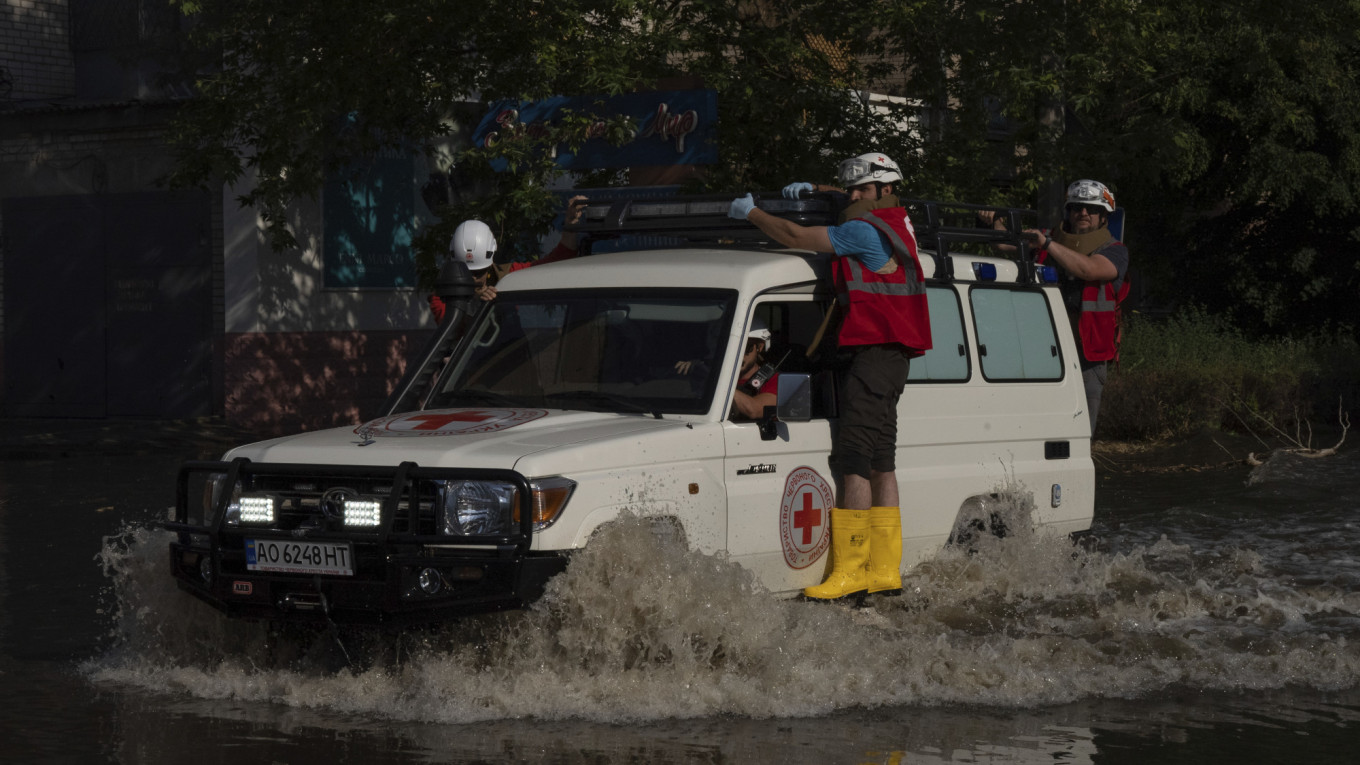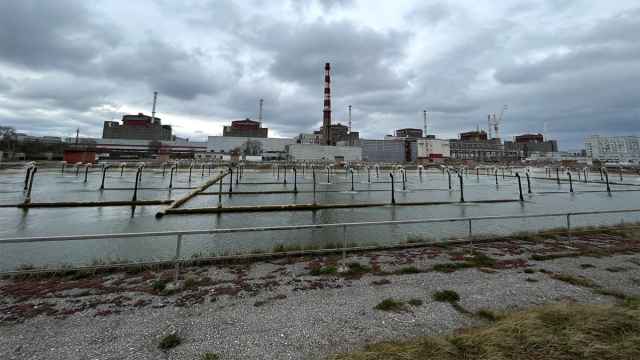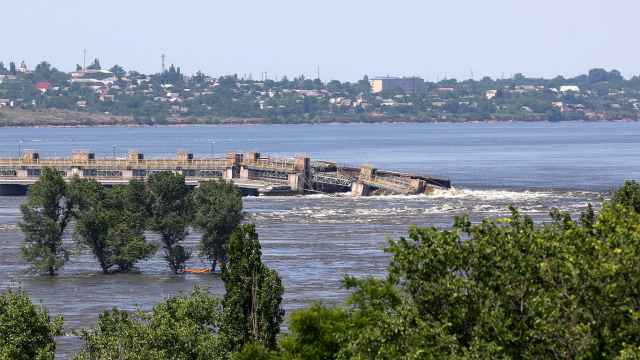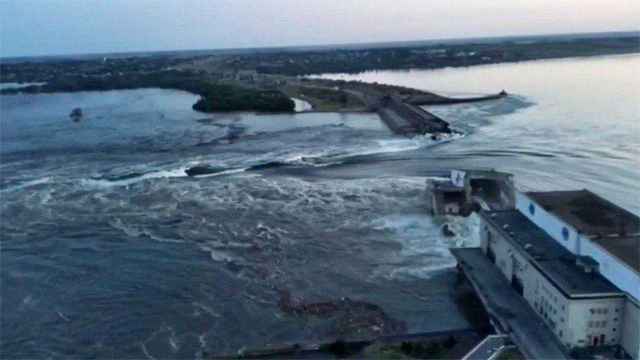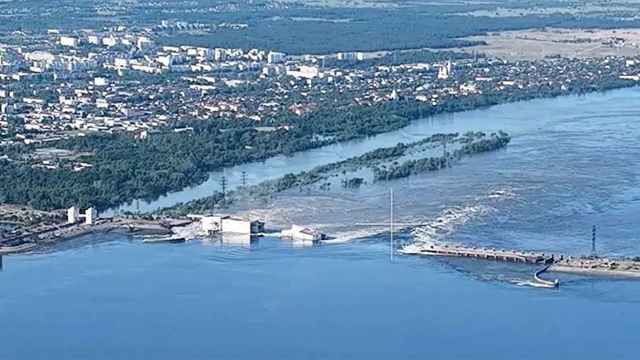United Nations Secretary-General Antonio Guterres said Tuesday that the partial destruction of the Kakhovka dam in Ukraine was "another devastating consequence" of Russia's invasion of its neighbor.
An attack on the major Russian-held dam in southern Ukraine unleashed a torrent of water that flooded a small city, inundated two dozen villages and sparked the evacuation of 17,000 people.
"Today's tragedy is yet another example of the horrific price of war on people," Guterres told reporters at UN headquarters in New York.
"The floodgates of suffering have been overflowing for more than a year. That must stop," he added.
Moscow and Kyiv traded blame for ripping a gaping hole in the dam in what Kyiv said was an attempt by Russia to hamper Ukraine's long-awaited offensive.
Guterres said the UN "has no access to independent information on the circumstances that led to the destruction" of the Kakhovka hydroelectric power plant dam.
"But one thing is clear," he added. "This is another devastating consequence of the Russian invasion of Ukraine."
Guterres, who since the start of Russia's invasion has condemned Moscow for violating the UN charter, said attacks against civilians and critical civilian infrastructure "must stop."
"We have all seen the tragic images coming out today of the monumental humanitarian, economic and ecological catastrophe in the Kherson region of Ukraine," the secretary-general said.
"The United Nations and humanitarian partners are rushing support in coordination with the government of Ukraine — including drinking water and water purification tablets and other critical assistance," he added.
Speaking at a Security Council meeting devoted to the dam blast, humanitarian chief Martin Griffiths said the destruction of the dam was a "massive blow" to food production in the region, as well as carried significant risks of mines and explosives being shifted by water to areas previously deemed safe.
The destruction of the dam "will have grave and far-reaching consequences for thousands of people in southern Ukraine – on both sides of the front line – through the loss of homes, food, safe water and livelihoods."
Russian Ambassador to the UN Vasily Nebenzya said the dam blast was caused by a "deliberate sabotage undertaken by Kyiv."
"It is the criminal Kyiv regime and the Western patrons obstinately pumping it full of weapons who bear full responsibility for the unfolding tragedy," Nebenzya said.
Ukraine's envoy Sergiy Kyslytsya said Moscow was "blaming the victim for your own crimes."
"The explosion of the dam of the Kakhovka [hydroelectric power plant] is an act of ecological and technological terrorism," he told the Council.
A Message from The Moscow Times:
Dear readers,
We are facing unprecedented challenges. Russia's Prosecutor General's Office has designated The Moscow Times as an "undesirable" organization, criminalizing our work and putting our staff at risk of prosecution. This follows our earlier unjust labeling as a "foreign agent."
These actions are direct attempts to silence independent journalism in Russia. The authorities claim our work "discredits the decisions of the Russian leadership." We see things differently: we strive to provide accurate, unbiased reporting on Russia.
We, the journalists of The Moscow Times, refuse to be silenced. But to continue our work, we need your help.
Your support, no matter how small, makes a world of difference. If you can, please support us monthly starting from just $2. It's quick to set up, and every contribution makes a significant impact.
By supporting The Moscow Times, you're defending open, independent journalism in the face of repression. Thank you for standing with us.
Remind me later.


